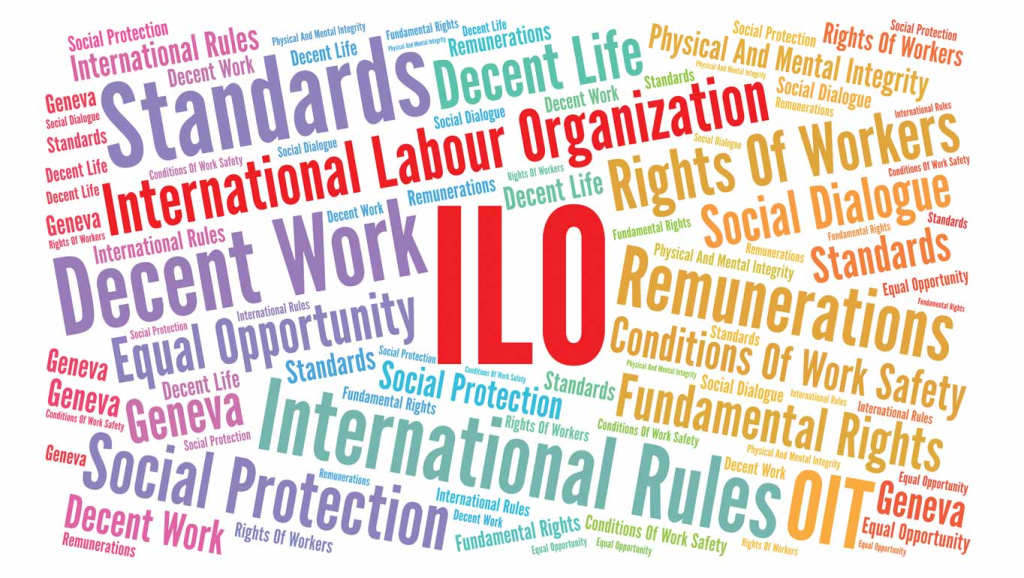
1.Introduction
Vietnam’s increasing integration into the global economy has been accompanied by efforts to modernize its labor law and strengthen protections for both domestic and foreign workers. Central to this process is Vietnam’s membership in the International Labour Organization (ILO) and its gradual ratification of key conventions on workers’ rights. For foreign employees, these commitments are particularly relevant in areas of non-discrimination, equal treatment, and collective bargaining. Yet, questions remain as to how effectively international standards are incorporated into domestic law and practice.
2.Vietnam’s Ratification of ILO Conventions
As of 2024, Vietnam has ratified 25 ILO conventions, including 7 of the 8 fundamental ones. Two are particularly important for foreign workers:
- Convention No. 98 on the Right to Organize and Collective Bargaining (1949)
Ratified in 2019, this convention requires states to protect workers’ organizations against anti-union discrimination and to promote voluntary collective bargaining. - Convention No. 111 on Discrimination (Employment and Occupation) (1958)
Ratified in 1997, this convention prohibits discrimination in employment on the basis of race, color, sex, religion, political opinion, national extraction, or social origin.
Through these commitments, Vietnam has formally pledged to ensure that foreign employees enjoy equal treatment in the workplace and that their rights to representation and collective bargaining are safeguarded.
3.Incorporation into Domestic Law
Several domestic laws reflect Vietnam’s attempts to integrate ILO standards:
- Labor Code 2019:
- Article 5(1) guarantees the right of all workers—including foreigners—to equal treatment in wages, working conditions, and participation in trade unions.
- The Code also provides a framework for collective bargaining agreements and labor representation.
- Article 5(1) guarantees the right of all workers—including foreigners—to equal treatment in wages, working conditions, and participation in trade unions.
- Law on Trade Unions 2024 (as amended):
Provides the legal foundation for union activities, though in practice foreign workers cannot form separate unions and must rely on enterprise-level unions dominated by local employees. - Law on Employment 2013 and Law on Occupational Safety and Hygiene 2015:
These laws include non-discrimination principles and extend coverage to foreign employees working legally in Vietnam.
4.Gaps in Implementation
Despite progress, several shortcomings undermine full alignment with ILO standards
a) Restrictions on Union Participation
While the law grants foreigners the right to join trade unions, in practice their participation is limited. Foreigners cannot stand for leadership positions in unions, which weakens their influence in collective bargaining.
b) Weak Anti-Discrimination Enforcement
Although Convention 111 is reflected in the Labor Code, enforcement remains uneven. Cases of wage disparities between local and foreign workers in comparable positions are rarely investigated. Moreover, foreign employees face indirect discrimination linked to visa and work permit rules, which employers sometimes exploit to restrict bargaining power.
c) Limited Awareness and Access
Many foreign workers—particularly low-skilled migrants—are unaware of their rights under ILO conventions or domestic law. Language barriers and the lack of targeted outreach compound the problem.
d) Incomplete Ratification of Fundamental Conventions
Vietnam has not yet ratified Convention No. 87 on Freedom of Association, which would guarantee the full independence of workers’ organizations. This gap limits the scope of union representation for both local and foreign employees.
4.Conclusion
Vietnam has taken significant steps to align its domestic labor regime with ILO standards, particularly through ratification of Conventions 98 and 111. However, foreign employees continue to face restrictions in union participation, weak enforcement of anti-discrimination measures, and limited access to remedies. Bridging these gaps requires not only further legal reform but also stronger implementation mechanisms. Doing so would enhance Vietnam’s international credibility and foster a more equitable labor environment for all workers, regardless of nationality.
📞 CONTACT LEGAL CONSULTANT:
TLA Law is a leading law firm with a team of highly experienced lawyers specializing in criminal, civil, corporate, marriage and family law, and more. We are committed to providing comprehensive legal support and answering all your legal questions. If you have any further questions, please do not hesitate to contact us.
1. Lawyer Vu Thi Phuong Thanh, Ha Noi Bar Association
Email: vtpthanh@tlalaw.vn
2. Lawyer Tran My Le, Ha Noi Bar Association
Email: tmle@tlalaw.vn
NHM

